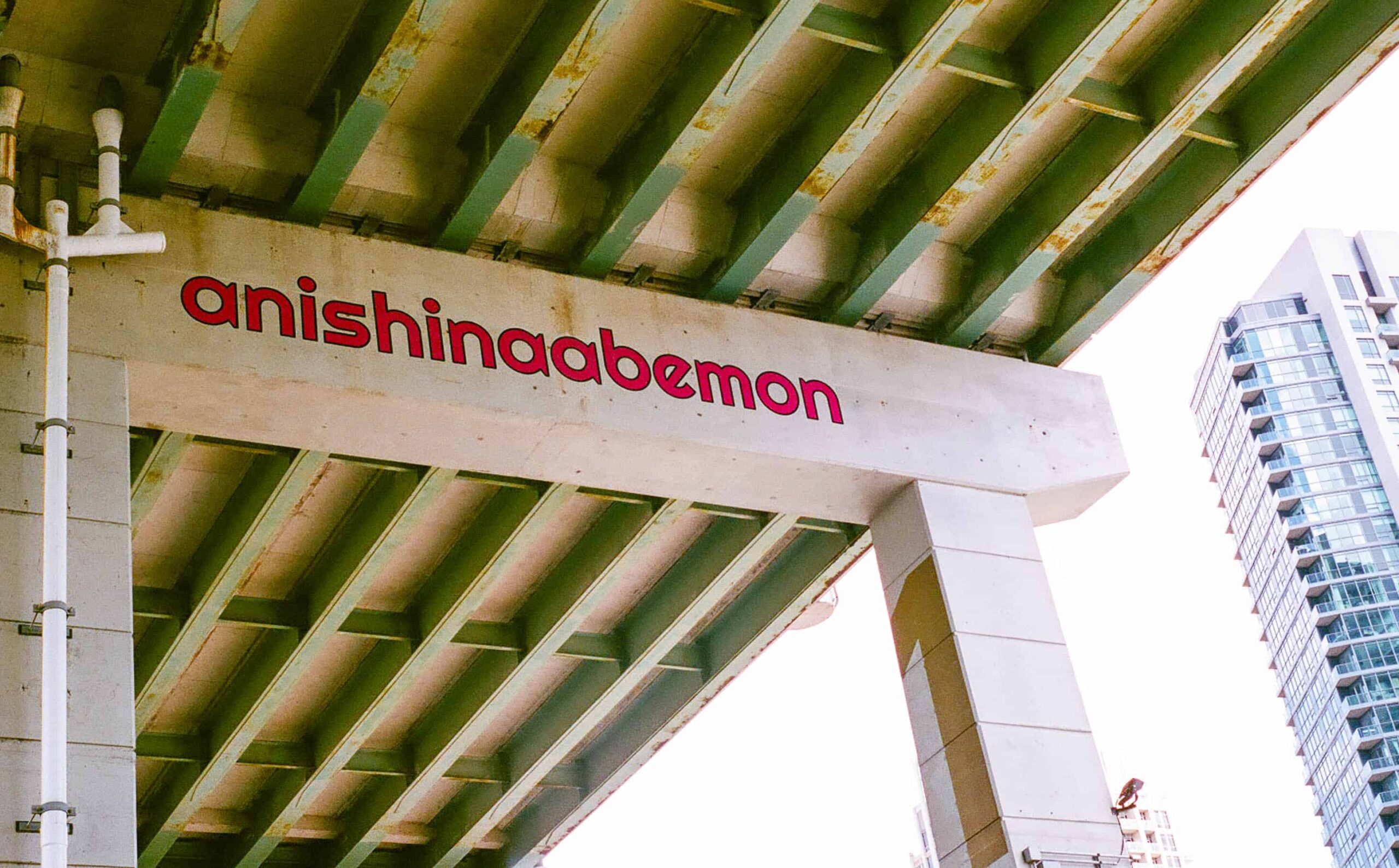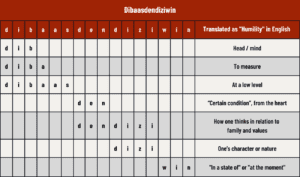- About
- Research
-
-
- Special Reports & Features
- Braiding Accountability: A Ten-Year Review of the TRC’s Healthcare Calls to Action
- Buried Burdens: The True Costs of Liquified Natural Gas (LNG) Ownership
- Pretendians and Publications: The Problem and Solutions to Redface Research
- Pinasunniq: Reflections on a Northern Indigenous Economy
- From Risk to Resilience: Indigenous Alternatives to Climate Risk Assessment in Canada
- Twenty-Five Years of Gladue: Indigenous ‘Over-Incarceration’ & the Failure of the Criminal Justice System on the Grand River
- Calls to Action Accountability: A 2023 Status Update on Reconciliation
- View all reports.
- Special Reports & Features
-
-
- Yellowhead School
-
- The Treaty Map
- LIBRARY
- Submissions
- Donate
In 1993 and every year since then, Canada has designated March 31st National Indigenous Languages Day. Meant to encourage public awareness of endangered languages, it is also an opportunity for conversations about language loss, revival, protection, and revitalization. On this day we also pause to honour the strength and endurance of our language keepers who overcame fear, trauma, and shame inflicted by government and church assimilation strategies designed to eradicate our languages and knowledges.
We take this time to thank language teachers and students for their commitment and endeavors to keep our languages from being lost to history.
Language loss and reclamation is a personal story for many, including myself. Victims of the fear and trauma, my grandparents did not teach my father Anishinaabemowin to protect him from punishment and abuse at the Indian Day School he attended. As a result, the chain of culture and knowledge spanning thousands of years was broken. I did not have the opportunity to learn the language naturally from my family. As an adult, I have worked hard to reclaim my language by taking classes with several different language instructors at community centres and through university courses. Through learning the western dialect of Anishinaabemowin, my thought processes have been restructured from English noun-based thinking to a rich texture of understanding through verbs, actions, and descriptions full of words that unfold in layers, pictures, concepts, and stories.
Understanding Dibaasdendiziwin
Through my personal journey to reclaim Anishinaabemowin, I gained a profound understanding of why Indigenous languages matter.
In the spirit of enriching the conversation for National Indigenous Languages Day, I want to demonstrate how English is inadequate for translating cultural knowledge and bring understanding to two questions often raised but rarely discussed: 1) How do Indigenous languages hold culture, knowledge, and philosophy? and 2) How does learning an Indigenous language actively decolonize our minds?
From the long-established Anishinaabe cultural principles that have recently emerged as the Seven Grandfather Teachings, we will consider the teaching “Dibaasdendiziwin” (in English this is often translated to “humility”).
When we think about the word “humility” in English, various thoughts come to mind. The Cambridge Dictionary defines humility as “the feeling or attitude that you have no special importance that makes you better than others; lack of pride.” Merriam-Webster describes humility as “the quality or state of being humble” and then defines humble with words including: “ranking low in a hierarchy of scale,” not assertive, insignificant, unpretentious, and “reflecting, expressing, or offered in a spirit of deference or submission.”
If I internalize the English meaning of humility, I am likely to, consciously or subconsciously, embody submission and deference. I will learn that it is a cultural, Indigenous way of being to put ourselves low in rank, importance, and worth. If I absorb this colonial mindset, I might eventually allow it to erode my pride and self-worth making me less likely to stand up for myself, culture, and rights to comply with this “cultural teaching.” But this is not an accurate understanding of dibaasdendiziwin.
Dibaasdendiziwin has a very different meaning. Many words and ideas are contained within the whole word Dibaasdendiziwin, and their breakdown is as follows:
In contrast to the English translation, dibaasdendiziwin actually instructs us to think about and process a certain condition or situation using our range of personal understanding and experience. Through a word picture or story, it reminds us that we hold a vast range of knowledge symbolically spanning from the top of our being, (our head which includes our thoughts, mind, and spirit), all the way down to the level of earth and the experience we have gathered from our journey through life. Dibaasdendiziwin instructs us to consider this certain condition or situation in the moment from our heart, and to weigh it against the measure of our character or nature in relation to our family responsibility and values. One word, Dibaasdendiziwin, holds empowering cultural knowledge that gives us direction and guidance for making strong, thoughtful decisions.
This cultural principle tells us that we should apply compassion, not that we should humble ourselves. Dibaasdendiziwin and humility do not mean the same thing. And this is just one of the Seven Teachings mentioned above. What else is lost in translation, when we export Anishinaabemowin into English? Avoiding that practice, we can begin to understand how learning our languages can decolonize our minds and restore our sense of identity, pride, and self-esteem.
No More “Nish”
Colonization is insidious and often difficult to recognize in contemporary Canada. But one main symptom of a colonized mind is the internalization of oppressive thoughts and values. We must critically examine the thoughts, preferences, values, and patterns that derive from colonial thinking – inculcated via Western languages like English.
We have the power to decolonize our minds by learning the meaning and knowledge held in our languages. We can restructure our thought process to unlock ancient and future knowledges.
In closing, I would offer one strategy that we can all implement to protect and support Indigenous languages: use the full, complete words. Colonized thinking and pop culture shorten words and phrases to save time and take up less space, like “thanks” for “thank you” or “legit” for “legitimate.” We have lost much of our Indigenous languages as it is, and when we shorten our words like “nish” for “Anishinaabe,” “migs” for “miigwetch,” or “skabe” for “oshkabewis,” we are colonizing our own languages. In essence, we are agreeing that our languages don’t matter by demonstrating ourselves that they are not worth the time or space it takes to use the whole word in all its meaning. The reality of language revitalization is that, yes, words change and evolve through time and use, but there is a limit to how much we can bend them to our will. The shortened words don’t have any meaning on their own. Abbreviation is unfortunately not useful.
For future Anishinaabe, let us fight the colonial violence of silence by honouring the languages we are working so hard to reclaim and protect. Let us recognize the spirit of our languages and ancestors by using the full form of our words.
Citation: Meness, Jennifer. “Strategies for Revitalization on National Indigenous Languages Day” Yellowhead Institute. 31 March 2023. https://yellowheadinstitute.org/2023/03/29/indigenous-languages-day/
Image Credit: Yumi Numata
Endnotes
“humble.” Merriam-Webster.com. Merriam-Webster, 2023. Web. 29 March 2023.
“humility.” Dictionary.Cambridge.org. Cambridge Dictionary, 2023. Web. 29 March 2023.
“humility.” Merriam-Webster.com. Merriam-Webster, 2023. Web. 29 March 2023.


